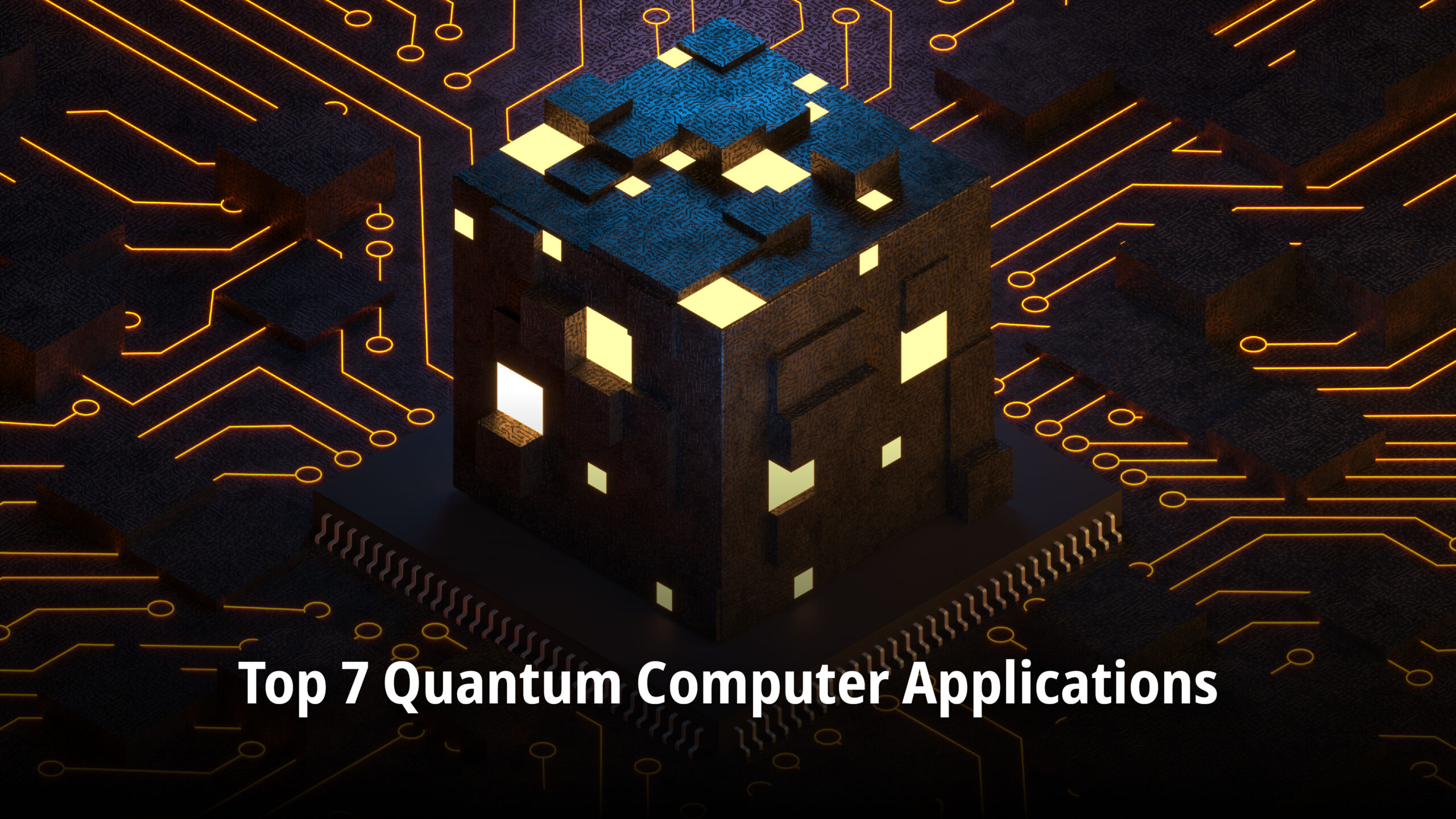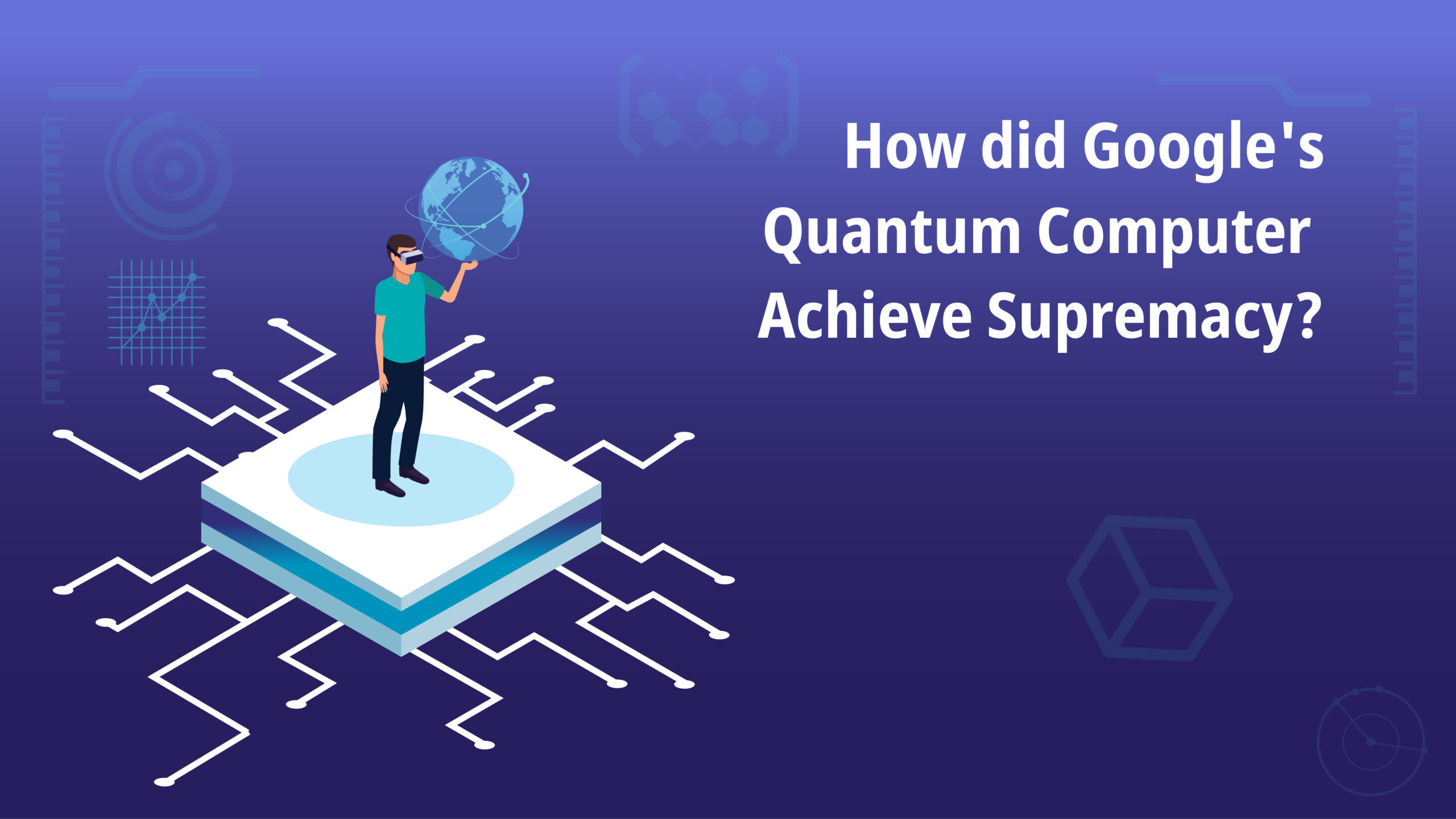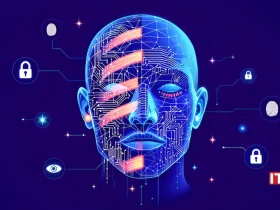Imagine a world where computers can solve complex problems in seconds that would take classical computers millennia to crack. This concept is no longer just an imagination; it is now a reality unfolding in the world of quantum computers (quantum computing) as you read these words. In this blog, we will embark on a thrilling journey through the history, inner workings, and mind-boggling advancements of these computers. Let’s delve right into it.
What is a Quantum Computer?
A quantum computer (QC) is an innovative computing system that applies the principles of quantum mechanics for computations. In contrast to classical computers using bits representing 0 or 1, QCs utilize qubits, capable of existing in a superposition of both 0 and 1 simultaneously. This unique property enables QCs to conduct numerous calculations at once, significantly enhancing their processing capabilities.
These computers leverage two fundamental quantum phenomena: superposition and entanglement. Superposition allows qubits to exist in multiple states simultaneously, and entanglement establishes correlations between qubits, regardless of their distance. These phenomena empower QCs to tackle complex computations and solve problems beyond the reach of classical computers.
How Does Quantum Computer Work?
Quantum computers operate based on the principles of quantum mechanics, processing information in a fundamentally different way than classical computers. Unlike classical computers using bits as 0 or 1, QCs employ qubits (quantum bits) capable of existing in a superposition of both 0 and 1 simultaneously. This unique property enables QCs to conduct multiple calculations simultaneously, exponentially enhancing their processing capabilities.
Key components of a QC include qubits, which are implemented using various physical systems like atoms, ions, photons, or superconducting circuits. Qubits are manipulated and controlled through quantum gates, equivalent to classical logic gates, enabling complex computations.
Entanglement, a fascinating aspect of quantum computing, occurs when qubits become correlated regardless of distance. This phenomenon allows the creation of quantum circuits capable of solving complex problems beyond the reach of classical computers.
Also Read: Exploratory Data Analysis: A Hands-On Approach to Data Exploration
History of Quantum Computers
The origin of QCs traces back to the early 1980s when renowned physicist Richard Feynman proposed the concept for the first time. Since then, significant strides have been made by researchers and tech giants to develop more potent and stable QCs. Despite these advancements, quantum computers are still in early developmental stages, grappling with technical challenges like maintaining qubits in a coherent state and reducing errors.
The potential impact of QCs is vast—they could revolutionize industries by solving problems currently beyond classical computers’ capabilities. This includes breaking encryption codes, optimizing complex logistics, expediting drug discovery, simulating quantum systems, and transforming machine learning algorithms. While QCs aren’t expected to replace classical computers entirely, they present a new computing paradigm that can complement and enhance existing technologies.
Top 7 Quantum Computer Applications
 Here are some notable applications of quantum computing:
Here are some notable applications of quantum computing:
- Cryptography and Cybersecurity: Addressing challenges with the development of quantum-resistant encryption algorithms.
- Drug Discovery and Material Science: Accelerating the discovery of drugs and materials by simulating complex molecular interactions.
- Optimization and Logistics: Solving optimization problems for route planning, supply chain management, and resource allocation.
- Machine Learning and Artificial Intelligence: Enhancing pattern recognition, optimization, and data analysis tasks in AI applications.
- Financial Modeling and Portfolio Optimization: Analyzing financial data to optimize investment portfolios and enhance risk management.
- Quantum Simulations: Simulating quantum systems for detailed studies in chemistry, physics, and materials science.
- Weather Forecasting and Climate Modeling: Improving weather forecasting models and understanding climate patterns through quantum simulations.
How did Google’s Quantum Computer Achieve Supremacy?
 Google’s quantum computer, Sycamore, with 53 qubits, established quantum supremacy by completing a task, which would take a classical computer 10,000 years, in 200 seconds. This highlights the potential of QCs to tackle computations beyond classical capabilities. Google aims to advance quantum computing, building scalable systems to solve problems impossible for classical computers. Google’s quantum computing research strives to progress quantum computing and create tools, both hardware and software, operating beyond classical capabilities. The focus is on constructing scalable QCs capable of solving problems currently out of reach for classical computers.
Google’s quantum computer, Sycamore, with 53 qubits, established quantum supremacy by completing a task, which would take a classical computer 10,000 years, in 200 seconds. This highlights the potential of QCs to tackle computations beyond classical capabilities. Google aims to advance quantum computing, building scalable systems to solve problems impossible for classical computers. Google’s quantum computing research strives to progress quantum computing and create tools, both hardware and software, operating beyond classical capabilities. The focus is on constructing scalable QCs capable of solving problems currently out of reach for classical computers.
Google’s QC has diverse applications across fields. They hold the potential to impact cryptography and cybersecurity, expedite drug discovery and material science research, optimize logistics and supply chains, improve machine learning and artificial intelligence algorithms, simulate quantum systems, and enhance weather forecasting and climate modeling.
Current State of Quantum Computing: Balancing Optimism with Realities
A recent article by Nature delves into the current landscape of quantum computing, acknowledging both challenges and recent breakthroughs. Researchers express optimism about advancements despite the existing limitations in developing fully functional QCs. The discussion revolves around potential applications, including drug discovery, cryptography, and machine learning. It underscores the necessity of managing expectations, particularly regarding the timeline for QCs to surpass classical counterparts in specific tasks. Despite the slow progress, the article emphasizes the crucial role of cultivating a quantum-skilled workforce for future advancements in the field.
Final Takeaway
Quantum computers have the potential to revolutionize industries, solve previously unsolvable problems, and advance our understanding of the universe. While these computers are still in their infancy, the rate of advancements and breakthroughs is accelerating. The quantum revolution is upon us, and as we unlock the mysteries of the quantum realm, the possibilities are as infinite as the universe itself.


































